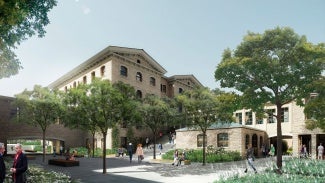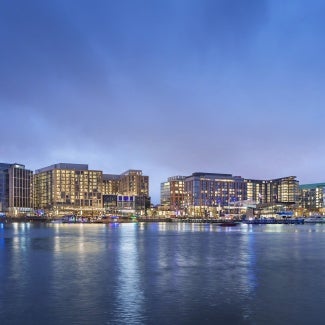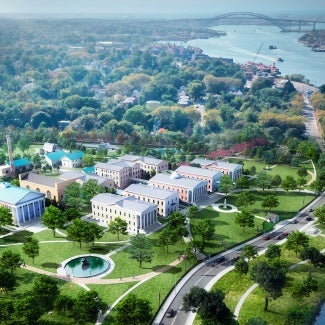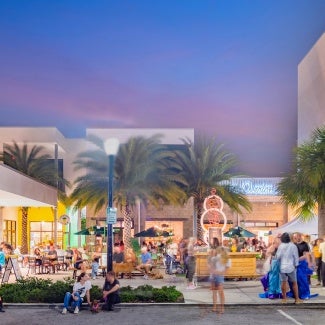Regional & Urban Design Award
Recognizes the best in urban design, regional and city planning, and community development.

For more information on opening and deadline dates, please see the AIA Awards FAQ.
Recognizing the best in urban design
Buildings never arise in isolation. The best planning accounts for the entire built environment, local culture, and available resources—modeling architecture’s promise and true value to communities.
The Regional & Urban Design program recognizes the best in urban design, regional and city planning, and community development.
In 2019, AIA adopted the Framework for Design Excellence as the set of guidelines and requirements to assess project performance. Climate action requires a holistic approach addressing the interdependence among people, buildings, infrastructure, and the environment. The Framework for Design Excellence provides the elements that support this vision during project evaluation. While projects submitted do not need to address all the measures included in the framework, they do need to highlight how they perform in this context and highlight relevant narratives and metrics when applicable.
Questions? Email AIA Awards
Entrants
- Owners, individual practitioners, private design firms, public agencies, civic organizations, and public interest groups can nominate projects or programs in which they were involved.
- A U.S.-licensed architect must be the author of the project.
- Submitting architects do not have to be the head of the team.
- Projects must credit every substantial contributor.
Projects
- Urban design projects, planning programs, civic improvements, campus plans, environmental programs, redevelopment projects, or other similar projects and programs may be entered.
- Individual buildings are not eligible.
- Size and location of the project or program are not factors.
- Incomplete or ongoing projects or programs may be entered if a significant portion has been completed, implemented, or adopted by a local jurisdiction or authority.
- If complete, projects must have been finished since January 1, 2019.
Each entry is judged for the success with which the project has met its individual requirements. Entries are weighed individually and not in competition with each other.
Design achievement can be evidenced by the exploration of new approaches to ecological planning, urban form, or sensitive reinforcement of successful historical development patterns.
Entries should integrate the engagement of ecological issues by describing (preferably with graphics) how the design addresses the ‘triple bottom line’—i.e. providing holistic solutions that simultaneously address environmental, social, and economic criteria. These include strategies that capture, collect, store, and distribute resident renewable resources and energies while enhancing the quality of life and promoting social equity.
Entries may also exhibit improvements in the quality of life, the environment, and/or the technical advancement of urban systems.
Entry fee: Single project submissions are $450 each. Submitting the same project to additional award categories costs an extra $100 per category.
Submission process: Visit the submission site for full submission details prior to the deadline. After logging in, you may view the entire submission site, and save your submission as you work to complete it. You will not be asked to pay until your submission is complete.
A sample application can be viewed here: Regional & Urban Design Sample Application
Please note: Some components of the sample application are subject to change from the final version and are merely here to allow a submitter to view the major criteria prior to logging on to the awards platform. Please rely on the online awards platform for the final criteria.
2023 Jury for Regional & Urban Design
The jury is composed of five (5) members, at least four (4) of whom shall be AIA members (three (3) of whom shall be architect members, at least one (1) of whom should be an architect member licensed less than ten (10) years), and at least of whom shall be a public official.
Neil Kittredge, AIA, Chair, Beyer Blinder Belle, New York
Mide Akinsade, AIA, Perkins & Will, Houston
Kim Reddin, AIA, FLAD, Madison, Wis.
Sheba Ross, HKS Architects, Atlanta
Vince Tam, AIA, HNTB, Dallas
2024 winners
41st and 43rd Street Pedestrian Bridges, Chicago
Music Lane
Rosemary Square
Snug Harbor Cultural Center & Botanical Gardens CPSD
The Wharf
View all 2024 winners.
Past winners
Regional & Urban Design Award 2023
Contact us for information on prior years' winners.



